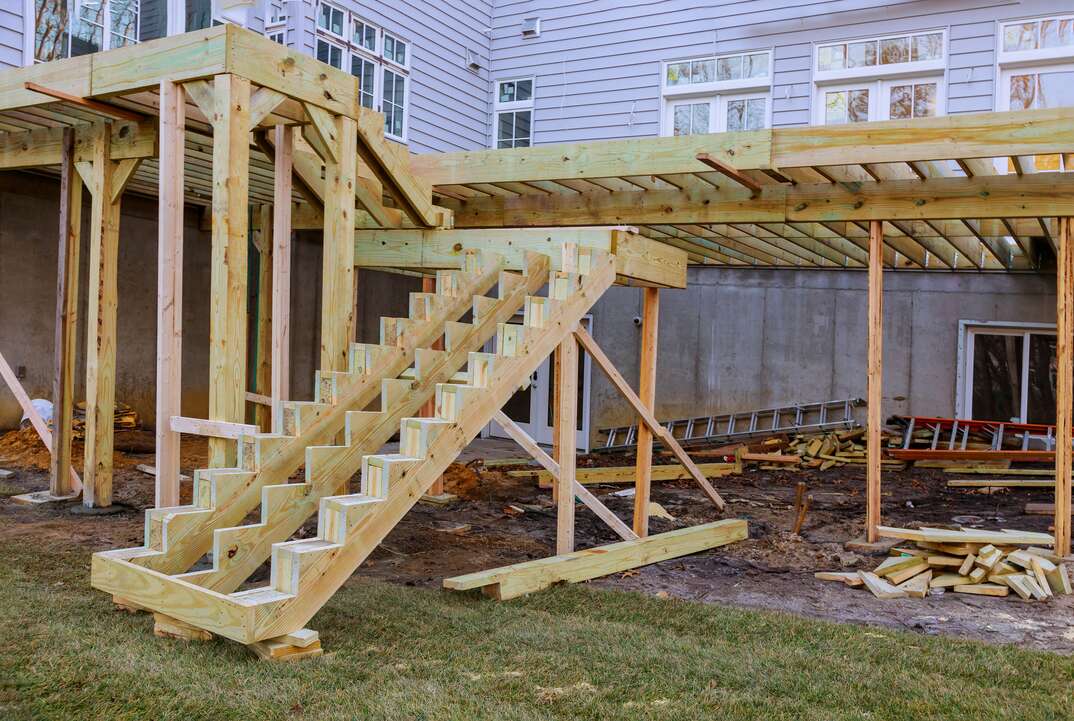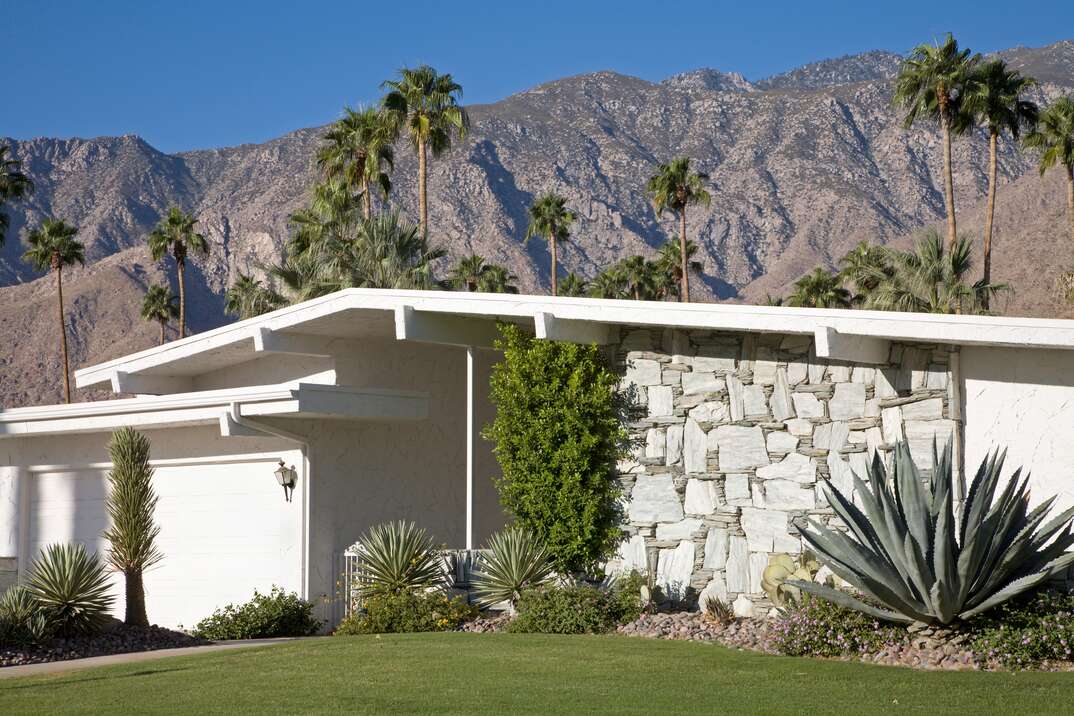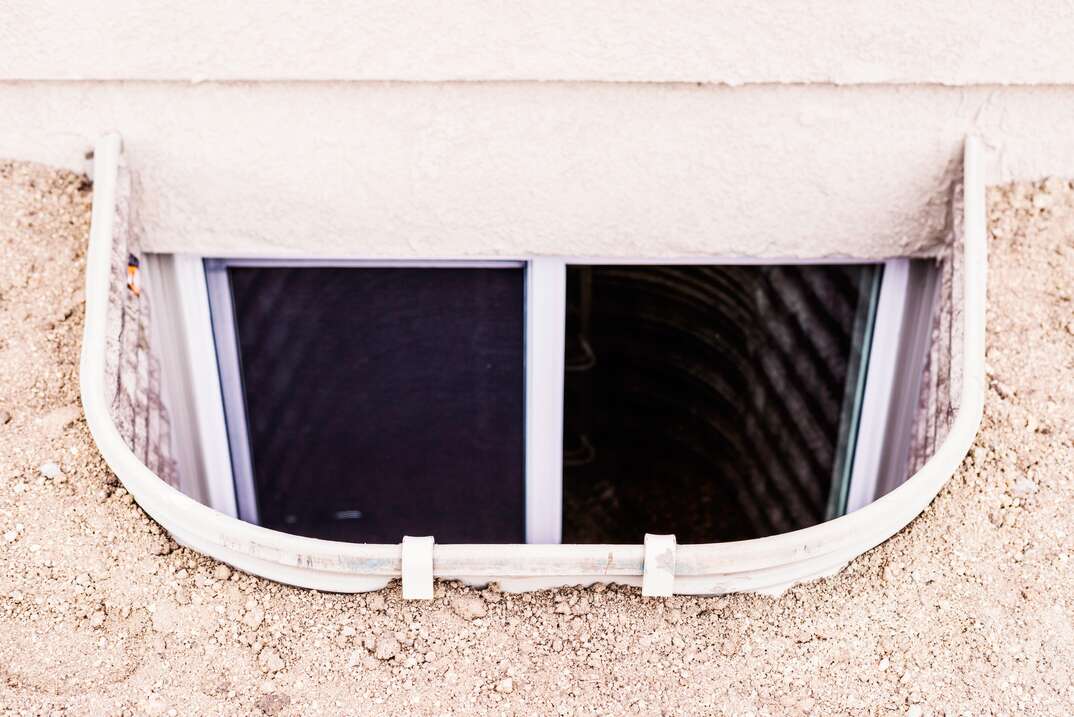How Much Does It Cost to Build A Deck?

If you don't currently have one, adding a deck is a great way to add usable space to your home, and if you enjoy having friends and family over, a deck is the perfect place for people to gather and socialize. Decks can also make your home feel larger, giving you a new spot to kick back and relax. What's more, a deck adds measurable value to your house, with homeowners able to recoup about 70% of building expenses when it comes time to sell. That said, building a deck isn't exactly cheap — and, in fact, it can get expensive quickly if you aren't careful.
This May Also Interest You: How to Build a Deck
There are a number of factors to consider when budgeting for a new deck. By keeping these in mind, you can be on the way to enjoying your new favorite spot at home.
The Basics
The average price range of building a new deck can be anywhere from $4,400 to $10,100 (CAD 6,009 to CAD 13,793), according to HomeGuide.
Including materials and labor, a standard deck will cost roughly $15 to $35 (CAD 20 to CAD 48) per square foot. That means, for a standard 14-foot by 20-foot deck, you can expect to pay between $4,200 and $9,800 (CAD 5,736 and CAD 13,383).
Before hiring a contractor, be sure to get a few estimates, as prices can vary greatly. Of course, these prices also depend on a range of factors, including size, design and the type of materials you choose to build your deck with.
Deck Costs by Material Type
Material type may be one of your first considerations, and you have a few different options to choose from, depending on your budget and desired features.
Wood Decks: The Standard
Pressure-treated wood is generally considered the standard material used in decking. Although a common choice among homeowners, a wood deck does require yearly maintenance to preserve its integrity and good looks.
For example, a wood deck needs to be sealed and treated once a year to avoid unnecessary splintering or rotting. Splintering wood can be pretty annoying and even downright dangerous to walk around on, so if you choose wood for your decking material, make sure you can handle the annual upkeep. Additionally, wood can be a haven for wood-boring insects, such as carpenter bees, ants and even termites. Without proper preventive measures, these insects can ruin your deck in a relatively short amount of time.
The type of wood also plays a factor in how much your deck will cost. Standard pressure-treated wood planks cost $5 to $8 (CAD 7 to CAD 11) per square foot.
Using high-quality, exotic wood can drive up costs quickly. For example, ipe wood, a popular exotic hardwood used in decking, can cost between $10 and $15 (CAD 14 to CAD 20) per square foot. Redwood is another premium wood that has gained popularity in recent years. Like other premium hardwoods, it offers an alternative to pressure-treated wood. A properly maintained redwood deck might last more than 30 years with few signs of wear and tear.
Composite Decks: Eco-Friendly
Another popular option for decking material is composite decking. Composite material is typically made out of recycled plastics and wood byproducts. What's great about composite decking material is that it doesn't rot or split — ever. Additionally, composite material lasts longer and doesn't require nearly as much upkeep and maintenance as standard wood decking. Once your composite deck is built, all you have to do is use it.
As an added benefit, composite decking can be more eco-friendly than using pressure-treated wood. For example, composite decking uses wood byproducts and recycled plastics; some brands, such as Trex, use up to 95% recycled materials. Additionally, these planks never need to be stained, painted or sealed, limiting toxic off-gassing from harsh chemicals.
As you might expect, the inherent benefits of composite decking make it a pricier option. For example, Trex, one of the leading brands of composite decking material, can cost up to $20 (CAD 27) per square foot, compared to $5 to $8 (CAD 7 to CAD 11) for wood planks. On average, you can expect to pay between $5,821 and $10,826 (CAD 7,949 and CAD 14,784) for a 12-foot by 24-foot composite board deck with railings.
More Related Articles:
- How to Stain and Seal Your Deck
- How Much Does It Cost to Build a Shed?
- How to Build a Shed: An 8-Step Overview
- How to Build a Fire Pit
- How to Build a Gazebo
Vinyl Decks: Maintenance-Free
One decking material option that's been gaining popularity in recent years is vinyl (PVC) decking. PVC is an extremely common plastic, used in everything from pipes to wrapping material and other building products. Like composite decking, PVC decks are virtually maintenance-free. Aside from standard cleaning, these decks don't need painting, staining or sealing.
Although PVC decking maintains a sleek appearance year-round, the planks can expand and contract as the seasons change, eventually causing some of the fasteners to come loose. Like composite material, the upfront cost of a vinyl deck is typically more expensive than that of a wood deck — but the absence of a need for regular maintenance makes the upfront cost the only major expense associated with this type of decking. Based on data from Fixr, vinyl decking costs between $5 and $13 (CAD 7 and CAD 18) per square foot for the materials and between $17 and $33 (CAD 23 and CAD 45) per square foot installed.
Floating Decks
A far more affordable option for those interested in adding a deck to their home is a floating deck. Floating or freestanding decks aren't attached to any structure. They're built on top of the ground. Because of this, they don't require any frost-depth footings or concrete posts, making them generally a lot easier and quicker to build.
According to Bob Vila, installing a floating deck costs between $20 and $60 (CAD 27 and CAD 82) per square foot — a relative bargain. Even better, floating decks don't necessitate that you acquire a building permit to start your project, making them a DIYer's dream come true.
One Way to Save: Do It Yourself
Labor costs make up about two-thirds of the total cost of adding a deck to your home. One sure way to save some cash is to tackle the deck project yourself. Building a deck yourself is not as hard as you might imagine. With the proper tools and a little know-how, you can construct your own deck in a short amount of time — provided you have a solid plan of attack.
Before you start, it's important to check with your local building department or homeowners association to obtain any necessary approvals and permits you may need before you can build. Some elements of the project might involve an inspection, so be sure to plan your work around that eventuality.
You'll also want to consider the size of your deck project. Generally speaking, a deck should be wider than it is deep — some standard measurements for decks are 14 feet by 20 feet or 16 feet by 20 feet. In any case, you want to make sure there's plenty of space for outdoor furniture and for people to move around and enjoy themselves. You also want to make sure you consider the design. Decide if you'll need steps and, if so, how many. Make sure to keep railings and handrails away from doors and windows, as that can cause major functional issues.
Plan Your Deck
Although having a basic understanding of the associated materials and costs can help as you begin to envision your new deck, the most important thing you can do before hiring a contractor — or building it yourself — is to create professional plans for your project. Luckily, there are several helpful online tools that can help you create plans and accurately estimate the price. Or, you can hire a deck designer or contractor to help you realize your vision. Then, take these plans to a deck builder who can give you an estimate of the costs.
Enjoy Your Deck
Building a deck enhances your home in so many ways. It increases the livable space of your house and provides an open-air space to entertain guests. Moreover, a deck can add substantial resale value and aesthetic appeal to your home. By carefully considering what kind of deck you want to build — and whether you want to build it yourself — your new deck can be a valuable addition to your home.
All CAD conversions are based on the exchange rate on the date of publication.

.jpg)
